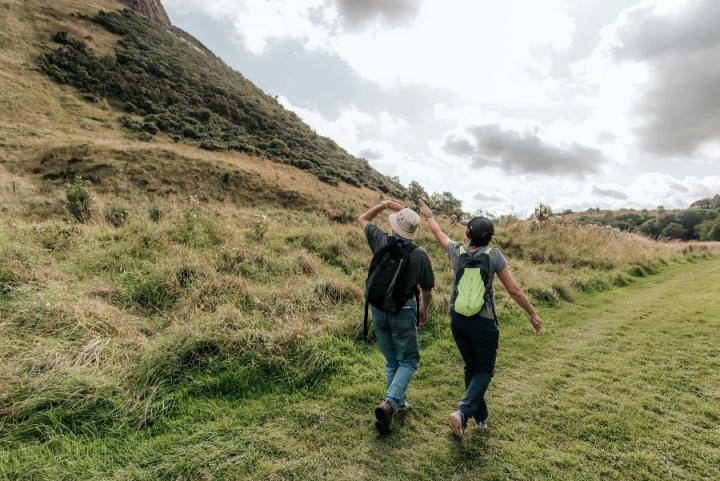COP26: The Climate, Earth Processes and People
Head of STEM Short Courses, Tom Challands, dishes the dirt on some of our Term 2 Science and Nature courses including how they can offer a fundamental introductory to understanding climate change.
For the last several months not a day has gone by without some form of news coverage about the 26th UN Climate Change Conference (COP26) being held in Glasgow. As you read this, leaders from around the world are discussing and making steps that affect not just our futures but that of all life on Earth.

That sounds dramatic and it is. Our global climate dictates the distribution not only of all organisms but also how our environment and landscape changes. If climate changes, the environment changes.
Climate change, and by extension, environment change, is difficult to comprehend because it occurs at a slower pace than the human life span. Furthermore, when change is gradual it is harder to recognise that change is happening until one day we suddenly notice that something has happened. Massive landslips, localised flooding, unseasonal and extreme weather events.
This slow change is why the Earth and climate sciences are so important. Earth and climate scientists work on scales where climate change can easily be seen – the record of snowfall or ocean temperature change as recorded in ice cores over hundreds and thousands of years for instance. Records of climate change are all around us in the soil and sediments and Earth has faithfully been recording these changes since the first sediments were worn away from terrestrial rocks and deposited beneath the waves.
But it is only in the last couple of hundred years that we have learnt how to unlock and interpret this record and it is only very recently that we have recognised that the changes we see in climate over the past couple of hundred years are unlike any represented in the geological record.
The Centre for Open Learning at the University of Edinburgh is fortunate enough to have experts in the Earth Sciences teaching Short Courses in term 2 that will introduce you to the principles of global change – the groundwork that, in many ways, has culminated in global events such as COP26.
Dr Fiona McGibbon’s course Earth Science: An Introduction (Part 2) provides the principles of Earth Science and how we can interpret past and present environments and processes from the rock record.
Dr Angus Miller’s courses on The Seven Hills of Edinburgh and Scotland’s Volcanoes take a local look on Scotland’s volcanic history – volcanic eruptions being responsible for responsible for altering the global climate through ash and gas emissions.
The world’s oceans are the biggest reservoirs of carbon on Earth and global climate change affects not just the balance of carbon in this reservoir but by knock-on effect the organisms and global food chains both in the sea and on land (we all want to be able to keep eating fish and chips!). Dr Iain Reid’s course on Marine Ecology details this delicate ecosystem and the organisms that form part of this global system.
So what better way to engage in COP26 than to learn about climate and Earth science with one of our Science and Nature short courses at the Centre for Open Learning?
There is no doubt that following COP26 we will all have many questions about the future of Earth’s climate. We cannot rely on others to answer all those questions for us and we do not need to as the best way to answer these questions is to become informed and learn - and whilst doing so, enjoy the experience! Love to learn.

